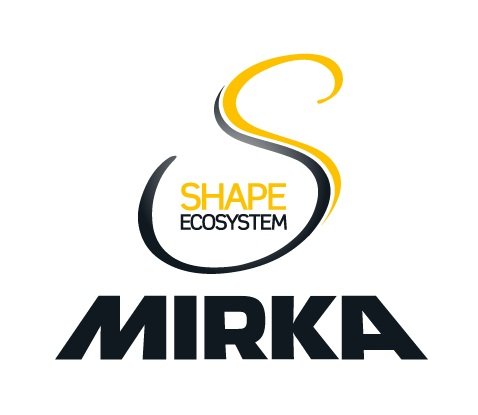Sustainable Materials with Markus Kass
The “Sustainable materials” R&D theme in the SHAPE Ecosystem is driven by Markus Kass from Mirka, who envisions a future where abrasive and polishing solutions are not only effective, but also sustainable.
Markus Kass
Markus Kass joined Mirka about 20 years ago and works as a Technology Manager, leading a team of 10 experts.
With his team, Markus develops solutions for achieving superior and sustainable materials for abrasives and polishing compounds.
The work done within the team is well-aligned with the “Sustainable materials” R&D theme of the SHAPE ecosystem.
Navigating the path towards sustainability comes with its own set of challenges. Markus and his team are committed to exploring non-fossil-based sources for materials. Eco-design demands not only using ecologically sound materials but also ensuring that end-of-life solutions are in place, promoting recyclability and reduced waste.
He envisions a future where Mirka's abrasive and polishing solutions are not only effective but also sustainable options.
“In our development work, we explore non-fossil-based materials to manufacture even more durable products, which translates to a longer lifespan and higher recyclability. This means we can decrease the use of raw materials and bring tangible benefits for our customers. A perfect win-win situation for all parties,” Markus says.
There are several areas of interest to be explored in this R&D theme. One of them is to examine residual dust generated from abrasive processes by Mirka’s customers and find out how the dust waste could be converted into valuable materials or products. Another is the development of premium grains for abrasives, where exploring synthetic ceramic grains as an option to enhance the life cycle is one of the objectives.
“Here, the challenge lies in creating homogeneous, durable, and energy-efficient grains that can be easily incorporated into products,” Markus explains.
Recycling pathways and potentially even manufacturing synthetic grains through 3D printing are both areas of active development. Further, developing eco-friendly binders to attach the grains to the bottom material, using bio-based and recycled fibers for the textile bottom materials, and tackling the complexity of recycling multi-material structures remain high in Mirka’s interests through the SHAPE Ecosystem.
As in all R&D themes of the SHAPE ecosystem, collaboration is key. Mirka's involvement in SHAPE provides a platform to connect, learn, and expand the company’s network. These collaborations are integral to driving innovative solutions and building a sustainable ecosystem.
Markus emphasizes the need for diverse collaboration. He envisions partnerships not just with solution providers but also with universities and companies in other fields tackling similar challenges.

